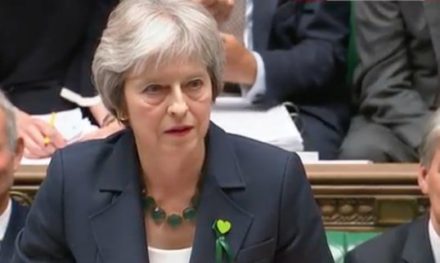
It seems there are no bounds to the Conservatives’ capacity for division and self-harm on Europe. But beyond the sound and fury, the fantasies of the Conservative Brexiteers are slowly crumbling. A negotiated hard Brexit has been an impossibility ever since Theresa May’s December agreement with Brussels. Now after the Chequers summit, pro-Brexit ministers have been forced to accept that fact or go.
For the pro-European left, it is tempting to lie low and just allow the Conservative Party to tear itself apart. But the newfound realism on the Conservative frontbench poses fresh challenges for Labour. For two years, the party has been able to act as the grown-ups on Brexit, with a line that’s been appreciably softer and more plausible than the Tories’. With the Conservatives now backing a customs union in all but name, the divide is much less clear and the opposition needs to decide whether to soften its position again.
Shadow ministers always knew that their promise of a customs union was necessary but not sufficient for the economic partnership the country needs. But they have avoided being pinned down on the terms of access to the EU internal market, knowing that if Labour was in power it would face the same dilemmas as the Tories regarding what the public wants and what the EU will accept. This is a particular issue for those Labour MPs who believe that a change of tack on immigration is an essential response to the Brexit vote, because a retreat from full freedom of movement probably means less access to the single market than Britain really needs.
On migration, Labour is divided. There are dozens of Labour figures with no personal animosity to the EU who fear what being too far from the cultural instincts of non-metropolitan working-class voters might mean. On the other hand, there are those – including senior frontbenchers – who are passionate about free movement irrespective of the wider relationship with Europe. To paper over the cracks Labour has been almost silent but that cannot last. The party needs to scope, test and debate all the immigration options that lie between unreformed free movement and zero preferential treatment for EU citizens. It must seek out ideas that can bring the left together and that Brussels might entertain. Labour can continue to oppose Conservative positions without this heavy lifting but it will have nothing to propose of its own.
The Norway option, which was the subject of a major backbench rebellion in June, will not unite the party. For those worried about a migration backlash it offers almost no change from present policy. Bennite ‘lexiters’ fear erroneously that it would not permit a radical socialist agenda. And everyone concedes that permanent rule-taking will be very tough for the UK to swallow. Many of the 75 Labour MPs who defied the party whip know this all too. Some of them voted for the EEA because they hope they can stop Brexit altogether. Others have no warmth for rule-taking but see the EEA as the only non-calamitous Brexit deal that the EU will offer.
The call for a ‘people’s vote’ is much more intellectually coherent than the EEA option and it is attracting strong support from both the right and left of Labour. Brexit is a long game and the frontbench will not endorse the idea until the shape of life outside the EU becomes clearer, but the scenarios in which a referendum could become party policy are growing more likely. For a start, almost everyone in Labour will be able to back a vote to stay if no deal is struck. And the same is probably true if all that is on offer is a Norway-style model that is close – but inferior – to the status quo.
By contrast Labour won’t be able to press for a second referendum if May is able to get what she wants from the EU27 and strike a bespoke ‘Goldilocks’ deal. There is no sign yet that Brussels will let this happen, but Brexit has been a rollercoaster and the left must prepare for every eventuality. If May succeeds, unity within Labour will be very hard to sustain. But the odds are against her and the prospect of a fresh vote is growing.
Andrew Harrop is general secretary of the Fabian Society,




More from LabourList
‘Labour’s quiet quest for democratic renewal’
‘Labour promised to make work pay. Now it must deliver for young people’
‘Council Tax shouldn’t punish those who have the least or those we owe the most’